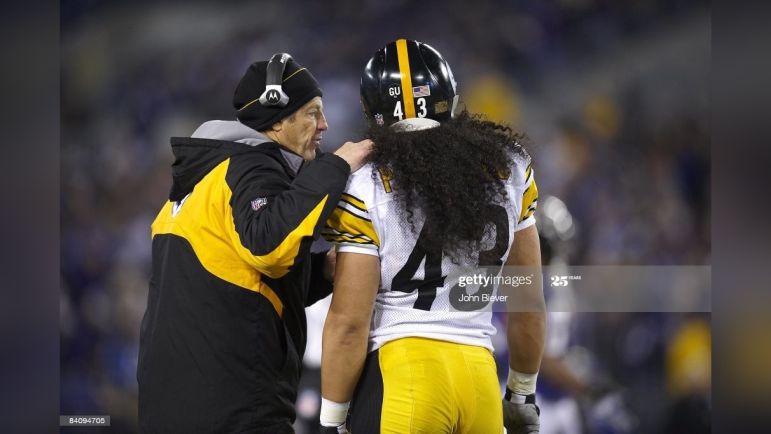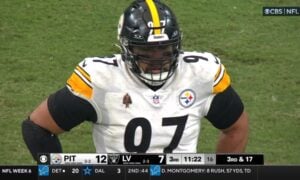Continuing with our written articles based off our interview with Hall of Famer and former Pittsburgh Steelers’ legendary DC Dick LeBeau, an interview you can listen to in Friday’s episode of The Terrible Podcast. Prior to discussing Ryan Clark’s underrated importance to those great Steelers’ defense, LeBeau talked about how he took first round pick Troy Polamalu, who struggled as a rookie, and helped mold him into the player he became, one of the best safeties in NFL history.
LeBeau wasn’t in Pittsburgh in 2003 but rejoined the team in 2004. Polamalu didn’t start any games as a rookie, finishing the year with just 48 tackles, and took his lumps as he adjusted to the complexity of the NFL game. For LeBeau, he took a simple approach in building Polamalu’s game.
“I had scouted Troy and worked him out when he came out of Southern California,” LeBeau said. “When I got [to Pittsburgh], I knew that this guy had phenomenal talent and I just thought it would be a matter of a little bit of patience and maybe a change of scheme here and there a little bit for him. One thing that I had seen him do in college was cover punts. And nobody could keep him from getting to the punt returner. Once he became a full-time Southern California starter that he didn’t cover as many punts as he did. But when I saw him cover the punts, I thought, man, this guy, he’s phenomenal.
“So when I became his coach, I said, ‘Troy, look, the defense ain’t any different than covering the punts. You gotta locate the ball and see where the blockers are and go get the ball carrier and get him on the ground.’ I said, the only difference is ain’t nobody punting when you’re playing from scrimmage. That’s all I had to tell him. Troy took over from there.”
Take over he did. Polamalu became a starter in 2004, finishing the season with 97 tackles, a team-leading five interceptions, and earned his first Pro Bowl bid. He’d go on to become one of the most dominant players at any position of any era, the type of player offenses tried to gameplan away from but never could, Polamalu’s instincts and playmaking always winning out. He’d go on to make eight Pro Bowls, four All-Pro teams, was named the 2010 DPOY, won a pair of Super Bowls, and earned his place as a first-ballot Hall of Famer.
LeBeau spent a bit more time talking about what made Polamalu special.
“He’s probably the most instinctive player that I’ve ever seen. And explosive. He could go from Point A to Point B so fast, and so many times he would surprise the receivers, ball carriers, blockers at the speed that he moved, the acceleration. He was, a 216-218 pound guy, big man. But he was so quick and that was the thing that stood out when people watched him play.”
LeBeau alone didn’t make Polamalu the player he is and in his infinite humility, is clearly deflecting credit with the answer he gave. Polamalu was a supremely talented player who probably would’ve figured it out eventually. But LeBeau’s response is an example in how good coaching doesn’t always have to be complex. It doesn’t need to be mystical or magical or take 20 hours of film to figure out. Sometimes it’s doing the opposite. Take the mystique away of playing defense. It’s the Vince Lombardi blocking and tackling. Defense is all about finding the ball, getting the ballcarrier down. LeBeau’s answer took the pressure off Polamalu’s shoulders and the results of that response were incredible.








